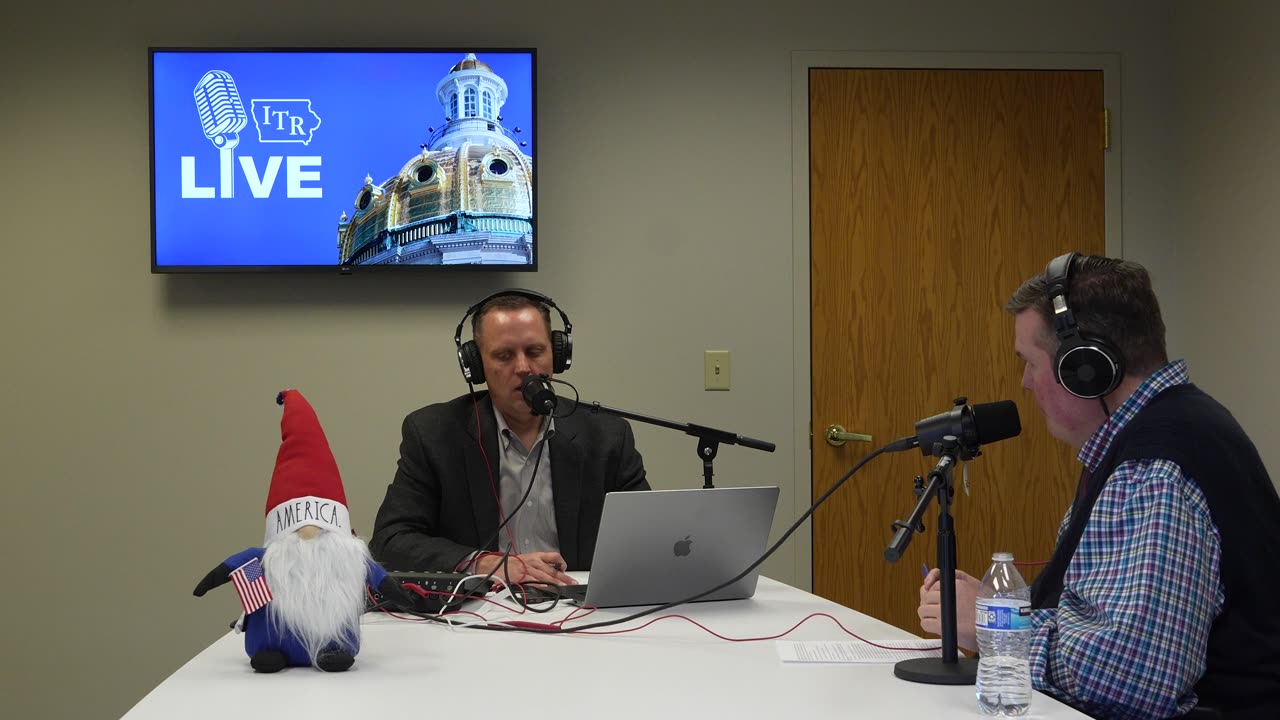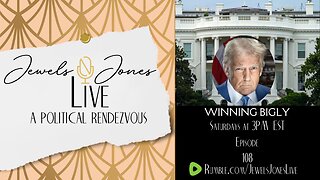Premium Only Content

The Iowa Gold Standard: Accurate Predictions and Exciting Developments
The landscape of conservative political discourse is continuously shaped and reshaped by pivotal events and figures, both past and current. In the following article, we delve into several key conversations that frequently animate conservative circles, including Russia's historical narrative, reflections on the COVID-19 response, and the ongoing debate surrounding the binary nature of gender.
Recent high-profile interviews like Tucker Carlson's with Vladimir Putin have brought the Russian perspective into the limelight. While these interactions provide a stage for Russia to articulate its viewpoint on historical matters, critics often perceive such discussions less as genuine diplomacy and more as aggressive posturing. From Russia's standpoint, their history cannot be disentangled from the present, particularly regarding their relationships and tensions with neighboring nations.
The disbursement of foreign aid by American legislators, particularly towards countries of strategic interest like Ukraine, Israel, and Taiwan, raises vibrant discussions regarding the prioritization of international versus domestic interests. The conservative perspective often leans towards skepticism about the effectiveness and accountability of such substantial financial support to foreign nations. There's an undercurrent of thought questioning the prudence of involving the U.S. in conflicts that may not directly impact national security or the well-being of American citizens.
On a more localized level, the unique nature of legislative sessions and the role of conservative leadership during such periods is an area of keen interest. The philosophy that government should be limited and intentional in its actions resonates with the conservative discourse. Hence, a quiet legislative year is not inherently troubling; it may reflect a considered approach where not acting is deemed preferable to acting without clear conservative objectives. Such perspectives emphasize the belief in strategic governance that is truly in service of conservative principles, rather than in the interests of political expediency.
Tax legislation remains a prominent subject for conservative policymakers who discern the implications of fiscal policies on economic competitiveness. While large-scale tax reforms like the Tax Cuts and Jobs Act draw considerable attention and debate, it is the more nuanced, smaller-scale changes that often play crucial roles in shaping fiscal policy. At a state level, legislation that may appear minor can have significant impacts, driving greater efficiency and competitiveness without drawing the spotlight.
In Iowa, lawmakers have introduced multiple pro-taxpayer constitutional amendments. These amendments can provide long-term stability by preventing future legislative bodies from easily overturning established fiscal safeguards. Broadly speaking, such amendments necessitate widespread support, reflecting a collective consensus on fundamental fiscal management principles.
The introduction and potential ratification of these amendments evidence the steady work within state legislatures aimed at refining and fortifying the fiscal frameworks. These efforts go beyond the day-to-day policymaking and offer a perspective that is strategic in scope, seeking to instill enduring policies that support prudent financial governance.
-
 11:00:11
11:00:11
tacetmort3m
1 day ago🔴 LIVE - SOLO RANK GRINDING CONTINUES - MARVEL RIVALS
191K3 -
![Shadows Of Chroma Tower, Alpha Playtest [Part 1]](https://1a-1791.com/video/fwe2/1d/s8/1/5/Q/U/n/5QUnx.0kob-small-Shadows-Of-Chroma-Tower-Alp.jpg) 13:29:21
13:29:21
iViperKing
23 hours agoShadows Of Chroma Tower, Alpha Playtest [Part 1]
158K8 -
 54:05
54:05
TheGetCanceledPodcast
20 hours ago $13.64 earnedThe GCP Ep.11 | Smack White Talks Smack DVD Vs WorldStar, Battle Rap, Universal Hood Pass & More...
137K34 -
 13:37
13:37
Exploring With Nug
1 day ago $9.64 earnedSUV Found Underwater Searching For Missing Man Jerry Wilkins!
97.3K4 -
 2:58:21
2:58:21
xBuRnTx
19 hours ago1st Warzone Stream Online
134K11 -
 6:10:21
6:10:21
JdaDelete
1 day ago $24.08 earnedDino Crisis - Sega Saturday
175K7 -
 23:22
23:22
MYLUNCHBREAK CHANNEL PAGE
1 day agoUnder The Necropolis - Pt 5
135K62 -
 2:26:11
2:26:11
Jewels Jones Live ®
2 days agoWINNING BIGLY | A Political Rendezvous - Ep. 108
187K51 -
 2:04:49
2:04:49
Bare Knuckle Fighting Championship
4 days agoBKFC FIGHT NIGHT MOHEGAN SUN FREE FIGHTS
100K7 -
 25:09
25:09
BlackDiamondGunsandGear
22 hours agoYou NEED to be Training For Whats to Come
69.9K14